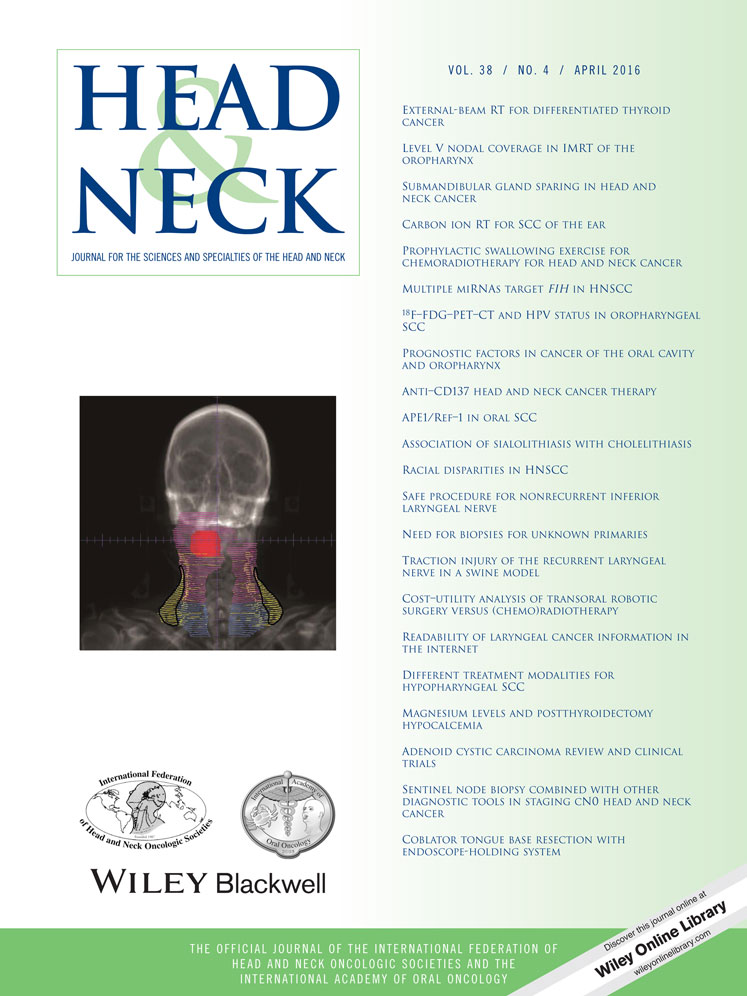Oncologic outcome of hypopharyngeal carcinoma treated with different modalities at 2 different university hospitals
Abstract
Background
The hypopharynx is the site with the worst prognosis among head and neck squamous cell carcinomas (SCCs). The purpose of this study was to evaluate the oncologic outcomes of hypopharyngeal SCCs to identify the major clinical predictive factors and to compare the different primary therapeutic modalities.
Methods
The medical records of 123 consecutive patients diagnosed with primary resectable hypopharyngeal SCC were reviewed. The correlations of oncologic endpoints with tumor parameters and primary treatment were evaluated.
Results
The overall survival (OS) rate was 76% and the disease-specific survival (DSS) rate was 80% at 3 years in the entire group. Sex and T and N classifications significantly influenced survival in both univariate and multivariate analyses. Seventy-four percent of our patients underwent both surgery and radiotherapy (RT), and the temporal sequence of the 2 modalities did not affect prognosis.
Conclusion
The primary treatment modality in patients with resectable hypopharyngeal SCC did not affect prognosis in univariate and multivariate analyses for any stage considered. © 2015 Wiley Periodicals, Inc. Head Neck 38: 606–612, 2016




